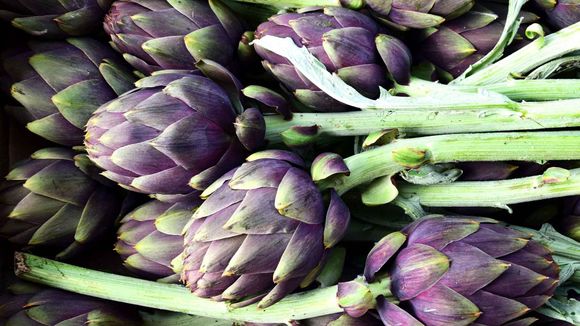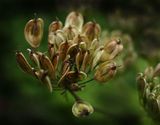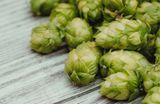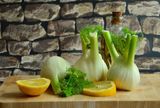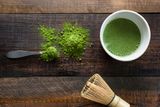Artichokes in the past
Artichoke, known to botanists as Cynara scolymus, is a plant native to the Mediterranean region (southern Europe and North Africa). It was used as food and medicine as early as the 4th century BC and was first described by Theophrastus. Artichoke was one of the first cultivated plants and was very popular in Egypt and among the ancient Greeks and Romans, who kept it for consumption by the aristocracy. However, the plant fell into oblivion until the 16th century, when it became known again among aristocratic circles.
In 1850, a French doctor managed to cure a boy with jaundice and unaffected by the then cures, with artichoke leaf extract. Then the plant becomes popular in traditional European medicine due to its diuretic (stimulates renal function) and its choleretic (biliary) properties. Indeed, these effects were subsequently proven by modern science, which began to study the plant in greater detail in the first half of the 20th century.
Features of artichokes
Artichoke belongs to the Asteraceae family, or simply put to that of sunflower. It is a perennial plant and is well known to culinary lovers and especially to those who appreciate French and Italian cuisine. Here it should be noted that the unfultered flower bud of the plant, also called the head, which is present in the cooking recipes, has become a by-name, and often it is it associated with the name artichoke.
In herbal decoctions and extracts, however, the leaves of the plant are used. They are feathery, prickly and have a blue-green color, the lower surface being fibrous. They are the richest of active substances.
Artichoke composition
Artichoke is widely recognized as a healthy and even superfood, as it is full of useful nutrients. The plant is low in fat, but rich in fiber, minerals, vitamins and antioxidants. It even ranks 17th in the ranking of 50 foods high in antioxidants [ref. 1]. There is a particularly large amount of vitamins C and K, as well as folate. As for minerals - it is a good source of magnesium, iron, potassium and others.
Some of the groups of compounds that artichoke leaf extract contains are:
- phenolic acids - up to 2%. This includes acids like chlorogenic, caffeic and cinarin, etc.
- sesquiterpene lactones - up to 4%
- flavonoids - up to 1%. They include luteolin.
- phytosterols
- tannins
It is worth paying attention to cynarin here, as most of the biologically active properties of artichoke are based on its action. It is also responsible for the characteristic bitter taste of the plant. Artichoke leaves have the largest amount - that is why they are used for the preparation of most herbal medicines and artichoke supplements. Of course, this does not mean that other active substances do not play a role, but we will focus on some of them a little further.
Healing properties of artichokes
Generally speaking, studies on the action of artichoke leaf extract show that it has antioxidant, hepatoprotective, biliary, antimicrobial and other properties. The plant is used as an improver of digestion, liver function and that of the gallbladder.
Healing properties of artichokes
Generally speaking, studies on the action of artichoke leaf extract show that it has antioxidant, hepatoprotective, biliary, antimicrobial and other properties. The plant is used as an improver of digestion, liver function and that of the gallbladder.
Helps reduce bad cholesterol
There are several studies on the effect of artichoke leaves on the formation of the so-called "bad" cholesterol [ref. 2] . Its name comes from the fact that this type of cholesterol has the ability to deposit on the walls of blood vessels, hampering normal blood flow and increasing the risk of cardiovascular disease.
It is believed that the mechanism of reducing bad cholesterol is expressed in reducing the body's ability to synthesize excess amounts of it, as well as reducing the synthesis of triglycerides [ref.3].
Since artichokes reduce the accumulation of triglycerides, it is often recommended as a means that protects against atherosclerosis.
Hypoglycemic effect
Diabetes is characterized by impaired metabolism and often leads to excessive accumulation of fat. Therefore, the use of substances that lower their synthesis would be useful. Artichokes are traditionally used as a natural product in the prevention and treatment of metabolic diseases such as diabetes. Since it completely stimulates metabolic processes and shows diuretic action, it helps the body to also discard excess fluids and salts.
Powerful hepatoprotector
The liver can be called the "purifier" of the body. All toxins and harmful substances pass through it to be neutralized. For this reason, it is good to keep it on the one hand through a healthier lifestyle (for example, limited intake of alcohol and fatty foods), but also by taking substances that have the ability to regenerate (renew) and protect its cells. This is one of the oldest known functions of artichoke. Today's studies show that cinnarine and silymarin are at least partly responsible for this property [ref. 4].
In addition, artichokes stimulate the secretion of bile contents. Thus, the purification of the body from toxic substances is facilitated.
Stimulates gut microbiota
A less well-known function of artichokes is associated with its pre- and probiotic action, favoring the development of several bacterial species [ref.5].
Favors digestion
Due to its high content of cynarin, artichoke not only reduces the accumulation of cholesterol plaques, but also affects the digestive processes extremely well. This is because the release of bile acids is the first step in the breakdown of fats and absorption of amast soluble vitamins. And artichokes stimulate just that, becoming an excellent addition to our healthy diet. Its consumption particularly affects people suffering from irritable bowel syndrome and dyspepsia (indigestion).
Anticancer activity
Some epidemiological studies show that diets rich in fruits and vegetables have a preventive effect against cancer [ref. 6] due to the presence of phytochemicals in them. Artichokes are also of growing interest, as they have a high content of polyphenols, which have strong antioxidant activity and are therefore thought to be able to prevent the development of cancer. Also, some studies show that ferulic acid has antiproliferative activity and inhibits the growth of cancer cells [ref. 7] .
Method of use
Due to its taste qualities, artichoke can very easily be added to any diet.
In addition, it can be taken in the form of a park of dried or fresh leaves, or in the form of a specially prepared tincture. The market is also full of ready-made additives, which can be found as capsules or tablets and drunk according to the directions in the package leaflet.
Contraindications
Its use is contraindicated in obstruction of the bile ducts, stones in them or other serious diseases of the liver and bile, unless prescribed by your attending physician.
People with an allergy to some of the substances contained should also not take the plant.
There are insufficient data on the safety profile for admission by children under 12 years of age and pregnant and nursing mothers.
